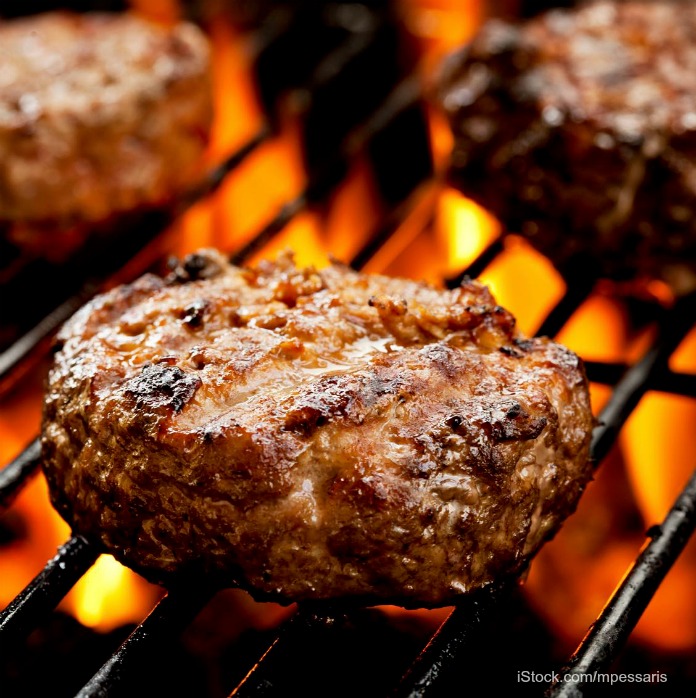The USDA is offering tips on how to “Grill Like a PRO” this summer. That means using a thermometer to check the internal temperature of meats and poultry before you serve them.

Research by the USDA and FDA found that only 24% of the public use a food thermometer when cooking hamburgers, and only 42% do so when cooking chicken. There have been many food poisoning outbreaks over the past few years linked to contaminated ground beef and chicken. Using a food thermometer is the only way to keep you and your family safe from food poisoning.
P – Place the Thermometer! Put the thermometer probe into the thickest part of the meat. The probe should go in about 1-1/2 to 2″. If you are cooking a thinner piece, such as hamburgers or chicken breasts, insert the thermometer from the side. Make sure that the probe reaches the center of the piece.
R – Read the Temperature! Knowing the safe final internal temperature of meats is one part of grilling. The USDA has a chart of safe temperatures. After you insert the thermometer, wait 10 to 20 seconds for the most accurate reading. All whole cuts of beef, pork, lamb, and veal should be cooked to a minimum of 145°F with a 3 minute rest time. Fish should be cooked to 145°F as well. Ground meats – all ground meats – should be cooked to 160°F. And whole poultry, poultry breasts, and ground poultry should be cooked to 165°F. Color is not a reliable indicator of doneness. Clean the thermometer probe after you have checked the meat, especially if the meat is not done.
O – Off the Grill! Once the safe minimum temperature has been reached, take the food off the grill with a clean pair of tongs, and put it on a clean platter. Never put cooked food on the same platter that held raw meats or poultry.
Finally, keep the food at a safe temperature during your cookout. Never leave perishable food out of refrigeration for more than two hours, one hour if the air temperature is higher than 90°F. Avoid the danger zone of 40°F to 140°F; keep hot foods hot and cold foods cold. And promptly refrigerate leftovers.




